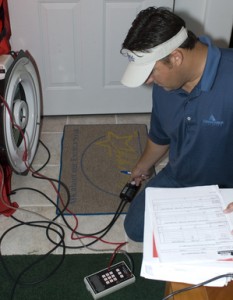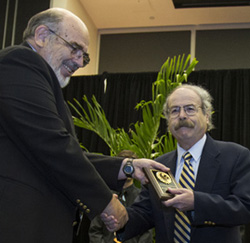Question: Is there a rater class distinction in Florida?
The answer is YES! Only in Florida are there 3 distinct classifications of energy raters – Class 3, Class 2 and Class 1.
Let’s review these three classification as well as requirements for each.
Class 3
Class 3 ratings are ratings based on construction documents. A Class 3 Rater is only recognized in Florida and can only rate buildings from these construction documents alone. A Class 3 Rater is not recognized nationally by RESNET and can only perform ratings in the State of Florida.
A Class 3 Rater must obtain 12 CEU’s (Continuing Education Units) every three years. Currently these CEU’s do not have to be registered with the Florida Department of Business & Professional Regulation (DBPR) and allow the rater to get short trainings from suppliers of construction materials and processes as long as the courses are related to “green building”, construction materials, HVAC equipment, insulation, ventilation, IAQ and energy efficiency.
Class 2
Class 2 ratings are based on a site audit. A Class 2 Rater measures the windows, walls, floors, ceiling and doors. The equipment and systems in the home are documented by make and model number and all are documented by photographs which become essential if there is a problem. A Class 2 Rater, like the Class 3 Rater, is not recognized nationally by RESNET and can only perform ratings in the State of Florida.
A Class 2 Rater must obtain 12 CEU’s every three years similar to the Class 3 Rater. Currently these CEU’s do not have to be registered with DBPR and allow the rater to get short trainings from suppliers of construction materials and processes as long as the courses are related to “green building”, construction materials, HVAC equipment, insulation, ventilation, IAQ and energy efficiency.
Class 1
Class 1 ratings are based on the site audit and include a building airtightness test as well as a duct leakage total test and duct leakage to outside test. A Class 1 Rater is the only one recognized nationally by RESNET and are allowed to perform ratings in every state except for California.
A Class 1 Rater can register the coveted tax credits for qualifying homes and are also eligible to register and certify homes for EPA’s Energy Star Version 3.0 (with special training) and DOE’s Challenge Home.
A Class 1 Rater is required to obtain 18 PDU’s (Professional Development Units) in three (3) years. These PDU’s can be obtained in three different ways.
- Attend a RESNET Conference and obtain 18 PDU’s by documentation of sessions to equal 18 hours. You can also attend the EEBA and ACI Conferences making sure that the tracks you attend are approved by RESNET
- Re-take the RESNET Core Exam and pass with at least 80%
- Take RESNET approved classes to obtain PDU’s
It is required that all raters regardless of classification will take a recertification test every three (3) years to retain their certification. At that time they will take a Recertification class and exams relevant to their classification. A Class 1 Rater will also show proficiency by performing a blower door and duct leakage test total and duct leakage test outside.
Questions regarding rater class distinction, contact Tei Kucharski.




